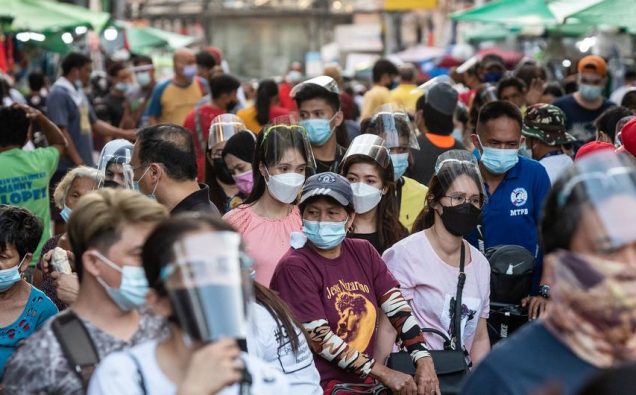
If you attributed your current state of dissatisfaction to the pandemic alone, you may be in for a surprise.
The pandemic is not the only factor, troubling the people around the world.
A new eye-opening study by the United Nations says people’s sense of safety and security is at a low in almost every country, with six in seven worldwide plagued by feelings of insecurity.
The reasons behind heightened stress among people range from the effects of climate change to deepening inequality in the world and related repercussions. And all of this has been exacerbated by the COVID-19 pandemic.
The UN Development Programme (UNDP) released the report last week, pointing out that even citizens living in countries that enjoy some of the highest levels of good health, wealth, and education outcomes, are reporting even greater anxiety than a decade ago.
“Despite global wealth being higher than ever before, a majority of people are feeling apprehensive about the future and these feelings have likely been exacerbated by the pandemic,” said Achim Steiner, the UNDP Administrator.
Steiner reminded the world of the implications of search forever growth.
“In our quest for unbridled economic growth, we continue to destroy our natural world while inequalities are widening, both within and between countries. It is time to recognize the signs of societies that are under immense stress and redefine what progress actually means.”
The report, New Threats to Human Security in the Anthropocene, calls for greater solidarity across borders to tackle the disconnect between development and perceived security.
The analysis raises questions about definitions of progress and advocates a new approach to development that it hopes will help people to live free from want, fear, anxiety, and indignity.
“We need a fit-for-purpose development model that is built around the protection and restoration of our planet with new sustainable opportunities for all,” he said.
The UNDP first introduced the concept of human security in its landmark Human Development Report, issued in 1994.
The study signals a radical departure from the idea that people’s security should be assessed by looking only at territorial security and instead should take into account their basic needs, dignity, and safety, to live secure lives.
The authors of the report believe the imperative to act now has never been clearer. For a second consecutive year, the pandemic has driven down global life expectancy at birth, as well as other measures of overall human development.
Climate change is also likely to become a leading cause of death worldwide, the authors warn and could be responsible for 40 million deaths before the end of the century, even with moderate mitigation of emissions.
It examines other threats that have become more prominent in recent years, including those from digital technologies, growing inequalities, conflicts, and the ability of healthcare systems to tackle new challenges like the pandemic.
The authors argue that addressing these threats will require policymakers to consider protection, empowerment, and solidarity alongside one another so that human security, planetary considerations, and human development, all work together and not despite each other.
Asako Okai, UN Assistant Secretary-General and Director of the UNDP Crisis Bureau, said the report highlights the need to build a greater sense of global solidarity based on the idea of common security.
“Common security recognizes that a community can only be secure if adjacent communities are too,” she explained. “This is something we see all too clearly with the current pandemic: nations are largely powerless to prevent new mutations of this coronavirus from crossing borders.”
The report further points to the strong association between declining levels of trust and feelings of insecurity. People with higher levels of perceived human insecurity are three times less likely to find others trustworthy.
Among the other findings is the widening gaps in healthcare systems between countries. The report includes a new index that reveals that between 1995 and 2017, inequality in healthcare performance worsened between countries with low and very high human development.
Other recent reports have also reported higher levels of concerns among young people, who have been badly hit by the pandemic, and their future prospects.
Rapidly growing inflation in the second year of the corona crisis has also been a cause of concern among many people.

















